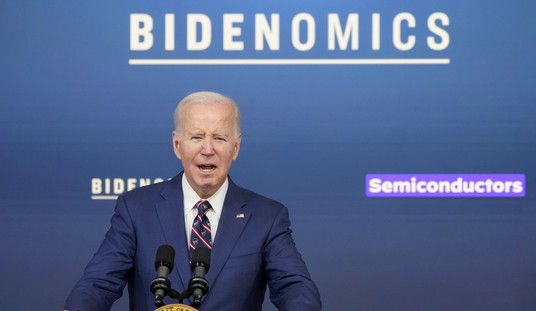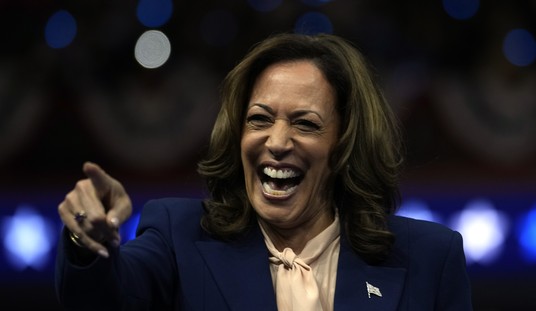The following graphic, taken from the home page of the PJ Institute’s National Economic Rescue Initiative (NERI), represents the Congressional Budget Office’s (CBO’s) best estimate of our national government’s annual tax collections, spending, and budget deficits in the coming 75 years if nothing is done to change its fiscal trajectory:

Unfortunately because of scale, it’s a bit hard to tell, but this is really a picture of certain financial doom that is unsustainable, really even in the short-term. As I’ve written several times before, though everyone in Washington acts as if it can’t happen, I am quite a bit less than totally confident that the country can make it to Election Day or January 21, 2013 without hitting the financial wall.
Barack Obama, the House, and the Senate were sent to Washington to deal with this. Rather than do so directly, the president and majorities in each legislative chamber punted their responsibilities under the Constitution to a so-called super committee of six Democrats and six Republicans, henceforth referred to as the Super Dupers.
The Super Dupers were tasked in November with finding the absurdly small sum of $1.2 trillion in federal budget “savings” over the next nine years (2013-2021). Democrats are said to have wanted $1 trillion in tax increases. Republicans, though willing to increase collections by several hundred billion by lowering rates, phasing out certain deductions, and selling assets, also wanted to see tangible action on spending. The Super Dupers ended up agreeing on absolutely nothing.
Because there was no deal, “automatic cuts” spread equally between defense and other spending are supposedly on track to take effect beginning in calendar 2013.
President Obama exhibited no leadership during the deliberations (or since then, for that matter), and from all appearances didn’t even try to push his party’s Dupers into anything resembling an achievable deal. Though disappointing, Obama’s virtual apathy is utterly unsurprising. On November 21, as the hopes of any kind of deal were dying, Bill Plante at CBS News, in a rare and stunning display of actual journalism, reported that “the administration couldn’t be happier that this is failing.” In their fevered minds, failure gives Obama a club to use on Republicans during next year’s presidential campaign. Once again, we have proof that the president and his administration, even as the country approaches a Grecian formula financial abyss, sees his reelection as far more important than America’s well-being.
Here are two important but little-known and underappreciated points about the Super Dupers’ failure which cannot be emphasized enough:
- None of the alleged “savings” under discussion (really reductions in projected spending increases) would have kicked in until the beginning of the 2013 fiscal year almost ten months from now. According to an Associated Press report, the “automatic” cuts noted earlier (if anyone believes they’re really going to happen) won’t begin taking effect until January 2013. In other words, contrary to the expectations of most, everyone involved apparently agreed during August’s debt-ceiling debacle that fiscal 2012 would be off-limits. Now, apparently, so is the first quarter of fiscal 2013.
- Even if they had met their definition of super success, the $1.2 trillion involved would have reduced projected 2013-2021 spending of $40 trillion (Page XI at link) by only 3%. Spending for fiscal 2011 was $3.6 trillion. According to the CBO, if spending runs on autopilot for the next ten years — who’s to say it won’t, given that the government has already gone without a budget since April 27, 2009? — fiscal 2021 spending will be $5.4 trillion. Given the tendency to push most savings to further-off years, a “successful” Duper deal might have trimmed that to $5.2 trillion. Big duping deal.
If the Super Dupers had “succeeded,” the graph seen at the beginning of this column would have budged almost imperceptibly, as seen here. Even that graphic is overly generous, as I had to assume that savings would begin in 2012. In a recent column, Mark Steyn described this as the fiscal equivalent of “Bailing Out The Titanic With A Thimble.”
Unbeknownst to almost everyone, because the go-along, get-along establishment shut them out and played the double-standard game (while the media either ignored or ridiculed them), there was a proposal available which would make meaningful and immediate progress towards solving our debt and deficit problems. Commissioned by Freedom Works, it was the result of “a months-long crowd-sourced effort to develop a budget proposal that balances the budget, reduces the debt and gets America’s fiscal house back in order.”
The Freedom Works “Tea Party Budget” promises to reduce projected 2012 spending by $562 billion, making it the only credible plan available with the common sense to deal with bloated spending this year. Over 10 years, the plan cuts projected spending by $9.7 trillion.
After some study and reallocation between the Tea Party Budget’s spending categories and those found in the PJ Institute’s NERI model, I estimated that the current annual value of the ten-year savings achieved in the Tea Party budget would be $800 billion, broken down and slightly rounded as follows: Military – $170 billion, Medicare – $110 billion, Medicaid – $50 billion, Social Security – $20 billion, and Other – $450 billion. Plugging those reductions into the NERI model shows that the Tea Party Budget, while still not aggressive enough, actually would make decent progress:

The Tea Party Budget also projects $5.5 trillion in reduced tax collections compared to CBO projections, arising primarily from maintaining the current federal income tax rate structure (in current flawed parlance, this is usually referred to as making the “Bush tax cuts,” which really represent the tax system under which we’ve been living for the past eight years, permanent). On this score, the Tea Party budget is far too pessimistic. Past experience would indicate that most if not all of the projected reductions in collections wouldn’t really occur. Under the current rate structure, if Social Security tax rates go back to their original level, a genuinely recovering and ultimately prospering economy would generate far more in tax collections than the Tea Party Budget projects. The Bush economy generated over $2.6 trillion in gross collections in fiscal 2008 — over $400 billion more than during fiscal 2010. A robust post-Obama recovery could and should get us to $3 trillion in annual collections much more quickly than Freedom Works suggests. Then the biggest “problem” would be making sure that Washington’s revenue gusher doesn’t cause the spending spigots to come back on.
Unfortunately, as events this month have also confirmed, we’re mired in the muck of a political class with almost no will to address the certain train wreck which awaits if nothing is done. A German reporter’s assessment of Washington’s legislative inertia at a White House press conference a few days before Thanksgiving pretty much said it all: “[I]t’s not really a time where the U.S. is in a position to give advice to Europe.” No kidding. Come to think of it, most in the Beltway establishment have been dupers — most definitely not super — for way too many years.









Join the conversation as a VIP Member